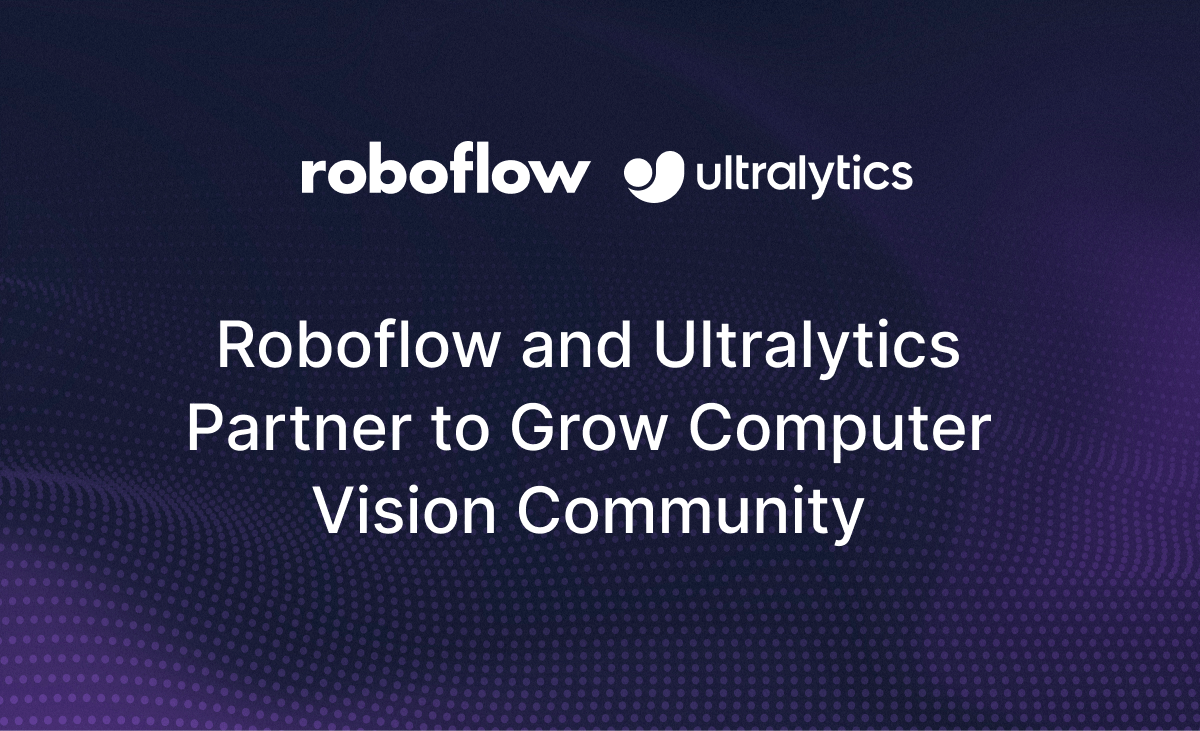
We're proud to share that Roboflow has entered into a partnership agreement with Ultralytics allowing Roboflow to license Ultralytics models and become the official dataset management and annotation tool for Ultralytics.
This means Roboflow is an authorized licensor of Ultralytics YOLO models and is permitted by Ultralytics to transfer, reproduce, redistribute, provide access to, and sell Ultralytics’ Models (ie YOLOv8, YOLO11, etc) for internal business purposes and incorporated into products and services.
We're excited to further support users building with Ultralytics through this partnership.
Tighter Integration
This partnership means deeper integration between the Roboflow and Ultralytics so that you can bootstrap your projects with public datasets, seamlessly train custom models, and continuously improve performance by sampling real-world data and adding it back to your dataset for re-training iteratively.
Roboflow's goal is to simplify the computer vision process so developers can spend more time on their domain specific problems instead of machine learning minutia and computer vision infrastructure. By integrating the data organization, preparation, and processing pipeline more closely with the training code, we can make computer vision even more accessible.
How to Get Started
To get started using popular YOLO models, create a free Roboflow account and start training a variety of models. When you deploy YOLO models using the Roboflow hosted API, you are granted a commercial license to use the models in your business.
Paid plans come with a commercial license for self-hosting Roboflow Inference and deploying outside of the Roboflow ecosystem is available for 10 devices on the Growth plan. For more than 10 devices, contact to Sales.
This means the community can start using YOLO models without any risk of violating the AGPL-3.0 license. AGPL-3.0 is a risk for businesses because all software and models using AGPL-3.0 components must be open-source, including custom trained versions of models.
Resources to Support Open Source
Supporting open source not only means improving integrations within our product, but also contributing financially to enable the further development and improvement of the Ultralytics project, including additional compute resources to further experiment with improving the state of the art for object detection. We think it's important to contribute back and support the open source ecosystem that underpins the advancement of our field and we're excited to be able to help computer vision continue to thrive.
We'd love to support more open source projects that share our goal of making computer vision accessible to every developer. If you're working on an innovative open source project lowering the barriers to access, please reach out if there are ways we can help!
Cite this Post
Use the following entry to cite this post in your research:
Brad Dwyer. (Sep 30, 2021). Roboflow and Ultralytics Partner to Grow Computer Vision Community. Roboflow Blog: https://blog.roboflow.com/ultralytics-partnership/
